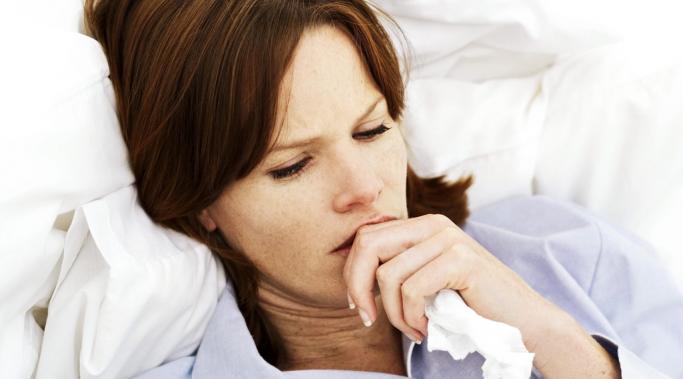LSD and Bipolar Disorder
LSD (Lysergic acid diethylamide, colloquially known as "acid") is an hallucinogenic drug that induces altered states of consciousness. But if you take this illegal drug, does it increase your risk of developing bipolar disorder?
Breaking Bipolar
I have had a lot of bad bipolar days in my life. Days when I was incapacitated. Days when I couldn’t make food for myself. Days when I couldn’t work. Days when I couldn’t talk to anyone. Days when I just couldn’t function.
On these days, I’m sick. And in some regards, it’s a type of sickness that is like many others. I feel like trash, I don’t want to move from the couch and everything hurts – that could describe a cold or the flu as well. But as it happens, it also described a bad day for depression or bipolar disorder.
But here’s the thing, when someone calls and asks if I want to have coffee, saying I’m too depressed isn’t seen as acceptable. That’s seen as weakness. That’s seen as something wrong with me. Whereas, if I said I was sick with a cold, that would be alright, because, after all, everyone gets colds and when they get them, it’s okay not to feel like socializing.
And I can’t tell you the number of days I’ve said I was sick with the flu, or a cold, or a stomach bug or anything but sick with bipolar. But really, that’s what I am.
Even amongst people with bipolar disorder, the disorder is highly contested. People argue about what it’s “really” like to have bipolar disorder. What mania is like. What depression is like. And perhaps most hotly debated of all is what the appropriate treatment of the symptoms is – antipsychotics, mood stabilizers, antidepressants, psychotherapies, alternative treatments and so on. People argue about virtually everything.
And one of the reasons why this is the case is because the experience of bipolar disorder is so vastly different. Some people experience manic psychosis, others do not. Some people experience delusional depression, others do not. Some people experience suicidality, others do not. And so on. Severity varies as do symptoms.
And I would argue that much of this disagreement stems from the two basic types of bipolar disorder: well-controlled and not well-controlled bipolar disorder.
In my lifetime I’ve been a very suicidal girl. I’ve been fighting off urges of suicide since I was about 13 years old, actually. Yes, effective treatment makes these disappear but treatment is, alas, not always effective.
But although I’ve thought of death more in this lifetime than anyone should, I’ve never actually been around a dying person. I’ve never seen a person so close to death that you can see the shadow of the scythe. That is, until now.
Bipolar disorder and borderline personality disorder have crossover traits and so a person with bipolar disorder can often mistakenly be diagnosed with borderline personality disorder. In fact, some feel that diagnosis with both disorders is inappropriate unless the patient’s bipolar disorder is in remission.
But some people do meet the diagnostic criteria for bipolar disorder and borderline personality disorder. I would have put this number much lower than it actually is thought to be. From the research I’ve done, it appears that borderline personality disorder is comorbid to bipolar in around 40% of cases. This is particularly surprising as it was once thought that personality disorders were only comorbid to bipolar in 12% of cases or less.
But what is borderline personality disorder and what does it mean if you’re diagnosed with both bipolar and borderline personality disorder?
In bipolar disorder comorbid conditions (conditions that occur alongside the bipolar disorder) are more the rule than the exception. In the video I discuss the psychiatric and non-psychiatric conditions that commonly occur alongside bipolar disorder.
Recently, it was announced that the very first diagnostic brain scan for a mental illness became Food and Drug Administration-approved. This test uses electroencephalography (EEG) to diagnose attention-deficit/hyperactivity disorder (ADHD). Finally, people with a mental illness (in this case ADHD) can point to a biological test and say, look – see – my disorder is biological in nature and we can test for it.
It’s not terribly surprising that ADHD is the first disorder to have this type of test as we understand an ADHD brain better than we understand a brain with other disorders. Nevertheless, it won’t be the last. Scientists are actively working on diagnostic tests for depression, autism, bipolar and schizophrenia too.
And while I consider this a major breakthrough in our real, tangible understanding of mental illness, there are reasons why diagnosis by brain scans matters and reasons why it doesn’t.
Delusions are false beliefs that are held in spite of a lack of evidence or even evidence to the contrary. For example, a delusion might be believing that the FBI is surveilling you every day or that you can predict the future. Delusions are a part of psychosis which can be present in bipolar depression or bipolar mania.
Delusions are easiest to spot when they’re exaggerated, like in the above examples, but I would suggest that delusions are much more common when we give them credit for. I would suggest that delusions are present in most cases of severe bipolar depression.
It is an unfortunate reality that some people with bipolar disorder refuse help. And it is an unfortunate reality that this deleteriously affects those in their lives. And it is unfortunate that some people are tied to those that refuse help, such as in the case of a marriage or partnership. So the question is, if you are married to a person with bipolar who refuses to get help for their illness, should you leave them?
One of the most controversial things the latest version of the Diagnostic and Statistical Manual of Mental Disorders (DSM-5) did was remove the bereavement exclusion from the depression diagnosis. Previously, people grieving the loss of a loved one couldn’t be diagnosed with depression for two months after the loss. Now, however, this is no longer the case. Now, even a person grieving the loss of a loved one can be diagnosed with depression.
And some people say this is a further medicalizing of normal emotion. I, however, would argue that there was a good reason for this change and that skilled clinicians can tell the difference between grief and depression. Here are some ways grief and depression differ.
![MP900321102[1]](/sites/default/files/styles/blog_listing/public/uploads/2013/08/MP9003211021.jpg?itok=8gWf99Hi)

![MC900441394[1]](/sites/default/files/styles/blog_listing/public/uploads/2013/08/MC9004413941.png?itok=UHwwmyXi)






